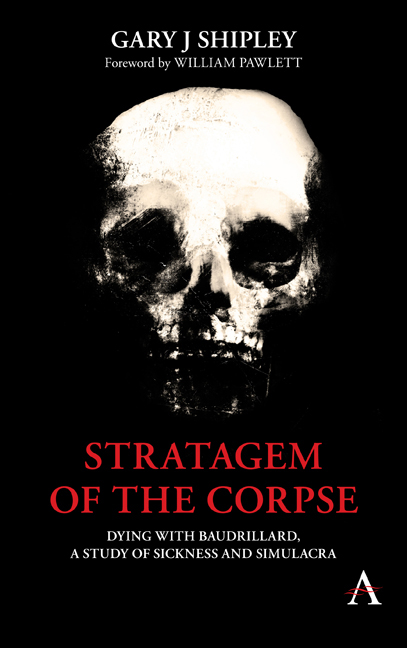Book contents
- Frontmatter
- Dedication
- Contents
- Acknowledgements
- Foreword by Pawletts William
- Introduction
- Chapter 1 On Decay and Other Synthetics
- Chapter 2 Stratagem of the Corpse
- Chapter 3 A Bleak Non-History of History
- Chapter 4 The Hyperactivity of Objects
- Chapter 5 The Unnamable Catastrophe
- Chapter 6 A Cure for Vertigo
- Chapter 7 Chance and the Temporality of Death
- Chapter 8 The Possibility of Nihilism
- Chapter 9 Smell-O-Vision: The Murder Show
- Chapter 10 The Evil Death
- Chapter 11 False Confessions and the Madness of Death: Making Death Speak
- Chapter 12 Black Light: Nigredo and Catastrophe
- Appendix 1 Whiteout: Spatiotemporal Interstices, Necropresence and the Immortality of Now
- Appendix 2 Pure Dreaming: Radicalized and Vermiculated Thought, or Death as an Earworm
- Appendix 3 The Non-Existence of the Scream
- Index
Chapter 5 - The Unnamable Catastrophe
Published online by Cambridge University Press: 20 February 2020
- Frontmatter
- Dedication
- Contents
- Acknowledgements
- Foreword by Pawletts William
- Introduction
- Chapter 1 On Decay and Other Synthetics
- Chapter 2 Stratagem of the Corpse
- Chapter 3 A Bleak Non-History of History
- Chapter 4 The Hyperactivity of Objects
- Chapter 5 The Unnamable Catastrophe
- Chapter 6 A Cure for Vertigo
- Chapter 7 Chance and the Temporality of Death
- Chapter 8 The Possibility of Nihilism
- Chapter 9 Smell-O-Vision: The Murder Show
- Chapter 10 The Evil Death
- Chapter 11 False Confessions and the Madness of Death: Making Death Speak
- Chapter 12 Black Light: Nigredo and Catastrophe
- Appendix 1 Whiteout: Spatiotemporal Interstices, Necropresence and the Immortality of Now
- Appendix 2 Pure Dreaming: Radicalized and Vermiculated Thought, or Death as an Earworm
- Appendix 3 The Non-Existence of the Scream
- Index
Summary
Catastrophe is always the crisis that doesn't happen, the one watched for that doesn't arrive, in spite of our watching, in spite of what our watching has been known to induce. (We find ourselves transported back to the subjective idealism of George Berkeley, as if anyone had actually escaped it.) Catastrophe's only risk is that it risks nothing and, in risking nothing, risks us. The sense of panic we come to know is not that something will happen, but that nothing will happen, and that no amount of vigilance could ever make it happen. How could we not constitute the universe, when we see it every day modelled on the dreams we had of it?
While implosion leaves us perennially unquenched, explosion is at least suggestive of conclusion, of revolt and release, of an end to waiting. For ‘an explosion is always a promise, it is our hope’, and no true promise, no promise that is prized in virtue of its essentiality alone, is ever made good on. Catastrophe never completes, but more than that, for in never completing it becomes the real, the real as simulation of itself. Crisis has a finality that cannot be absorbed, and so even when it arrives it doesn’t, because its arriving does nothing to quell the need to wait to see what happens, does nothing to put an end to itself: the explosion keeps going, outwards and outwards until every dispersal, every direction, turns into yet another opportunity for inconclusivity, for waiting – the appropriation of event by the future. If events are allowed to just happen, then their never-ending extension into the future is jeopardized: the naming of an event must also be its unnaming, its dissection, the manufacture of swamp materials from concrete, the noun made irretrievably inexorable in order that its continued existence as something yet to happen may be exacted over and over.
Who would ever notice a real catastrophe (a crisis) if one should occur? Its impact would be that of an unexplained pause, an evacuated place and time that gets filled with aftermath, the aftermath of the non-event. It's for this reason that extreme acts of terrorism come at us like a bad dream, unsettling and despicable but ultimately cartoonish.
- Type
- Chapter
- Information
- Stratagem of the CorpseDying with Baudrillard, a Study of Sickness and Simulacra, pp. 67 - 74Publisher: Anthem PressPrint publication year: 2020



